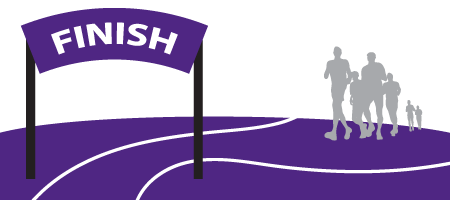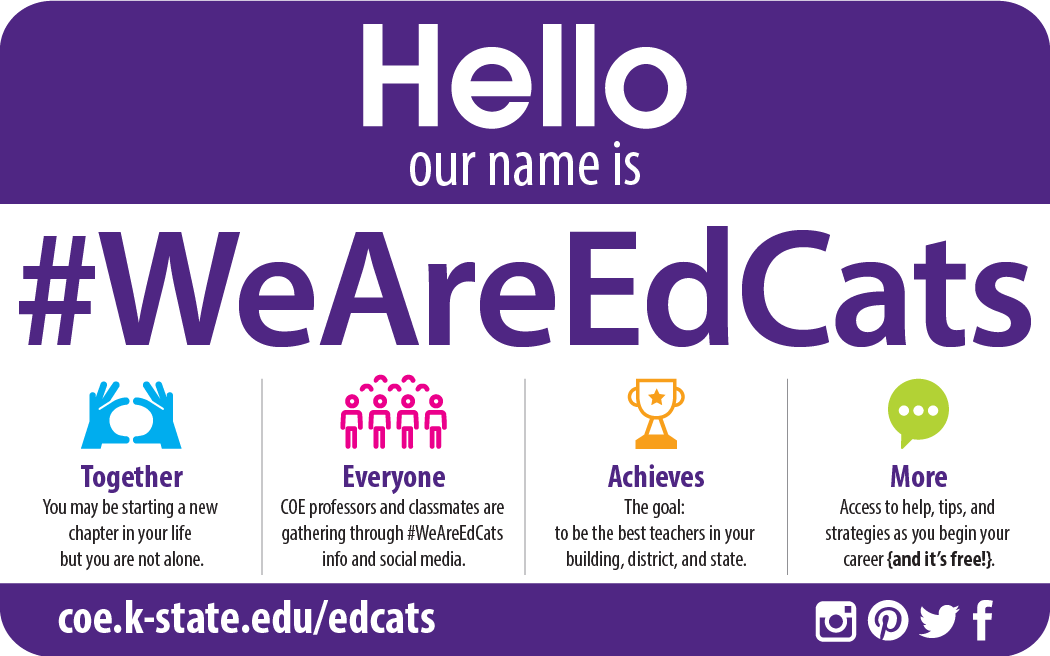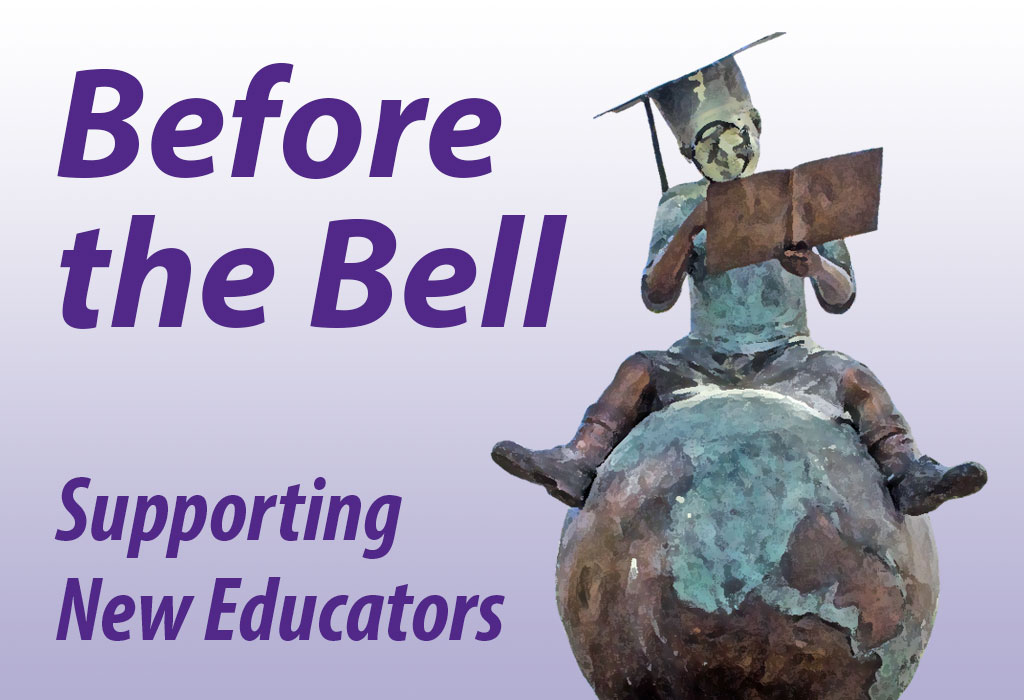Lori Goodson, Editor
Mary Hammel, Technical Editor
Category: April 2016
You’re on the Home Stretch
 Don’t look now, but your calendar has shifted to April. And, if you look just a few pages beyond today, you’ll see that your first-ever year as a classroom teacher is about to wind down!
Don’t look now, but your calendar has shifted to April. And, if you look just a few pages beyond today, you’ll see that your first-ever year as a classroom teacher is about to wind down!
As you were reminded during your KSU education classes, you always need a strong finish, so here are some ideas on how to accomplish that:
- Reflect! Even if you started off on the wrong foot with a student or two, make sure you don’t repeat that as the year comes to an end. Stay connected in a positive way to each of your students and their families.
- Students will be eager for summer, just as we adults are (go ahead, admit it!); they’re just a little more obvious about it! Help them stay focused by having activities that will take them “bell to bell,” to avoid any classroom management issues.
- Review your classroom rules. Your students are going to need reminders so all of you have a happy ending to your school year.
- Stay ahead of grading and other paperwork, such as lesson plans; it’s easy to let up a little at the end of the year, but that will mean some very hectic last days of school for you!
In The Classroom: Nick Johnson

First-year teacher Nick Johnson teaches ninth-grade Algebra 1 and geometry at Junction City High School Freshman Success Academy in Geary County Schools USD 475. He took time out from his schedule to share what it’s been like starting his new teaching career.
“My first year has gone so well,” Nick said. “The College of Education prepared me as well as it could. I went into the year very confident in my abilities and confident in my preparedness. I probably learned 50 things in the first month. They were things that I couldn’t learn without actually experiencing as the teacher. I learned how to better manage the classroom, give directions, explain procedures, enforce rules, etc.”
In the middle of his second semester, Nick said he is feeling more and more comfortable in his new role.
“I feel like I have a really good understanding of what I want my classroom to look like and how I want it to be run, but it took some trial runs to make it happen. My students have been so great about being flexible for me as I have learned and adjusted. I have also had the luxury of working with amazing teachers and administration. I’m very fortunate to be at Junction City.”

He said he appreciates all that the College of Education has done to get him ready to lead his own classroom.
“K-State does a phenomenal job of preparing educators to be successful in their classrooms and schools. I’ve experienced this firsthand and also seen many of my fellow EdCats be successful at Junction City.”
He admits it isn’t an easy profession, but the good definitely outweighs any difficulties.
“They say that your first year is super tough and it will stress you out and you’ll want to quit. I’ve been through this. I have had kids absolutely bomb tests. I’ve had weeks where it felt like nobody listened to me in class. I’ve had days where I couldn’t stand to be around the kids. But I’ve had days where parents emailed me and told me that I’m doing a fantastic job. I’ve had days where students surprised me with a gift of letters telling me I’m the best math teacher they’ve ever had.
“Our job is tough, but, man, can it be rewarding. I love being a teacher!”
Your Content Area Matters
 We asked a few of your favorite professors why their specific content is so important in schools today. Here are some of their responses:
We asked a few of your favorite professors why their specific content is so important in schools today. Here are some of their responses:
Dr. Brad Burenheide (Secondary Social Studies)—“It is the backbone of the mission of schools and the core subject matter of education for the past 2500 years in the western world.”
Dr. Sherri Martinie (Secondary Math)—“Math is applied in science courses, business course and the real world. Math is important to making sense of the world around us.”
Dr. Vicki Sherbert (Secondary English/Language Arts, Speech/Theatre, Journalism)—“Reading and writing are essential in order for our students to function as literate members of our society. They need to possess literacy skills in order to gain knowledge in other subject areas and to express their learning and understanding.”
Dr. Phillip Payne (Music Education)—“Music provides insight into one’s self more profoundly than any other subject. Music allows for self expression and also connects us to our school, our community, and our state (among others). Providing students with the cognitive keys necessary to access who they are as a person is one of the most influential acts we can do as music educators.”
#WeAreEdCats is just for you
 Need another place to go for support and info? Need a little more purple in your life? Then you need to be a part of #WeAreEdCats! Check out the website at coe.k-state.edu/edcats!
Need another place to go for support and info? Need a little more purple in your life? Then you need to be a part of #WeAreEdCats! Check out the website at coe.k-state.edu/edcats!
Keep in touch!
![]() Do you have a question about classroom procedures? Or a suggestion for a topic we should address in Before the Bell? Want to add your name to our mailing list? Or provide a different email for our mailing list? Or, if you’re in your first year of teaching, send us a photo of you at work in your classroom!
Do you have a question about classroom procedures? Or a suggestion for a topic we should address in Before the Bell? Want to add your name to our mailing list? Or provide a different email for our mailing list? Or, if you’re in your first year of teaching, send us a photo of you at work in your classroom!
Second-year teachers, feel free to jump in and offer suggestions to those who are following your career choice!
We’d love to hear from you, so please email us at lagoodson@k-state.edu.
Go, COE Cats!
Wrapping Up Your First Year
 While the school calendar may be slipping away, you still have plenty to accomplish in your first year of teaching. Consider these points before you make your summer plans!
While the school calendar may be slipping away, you still have plenty to accomplish in your first year of teaching. Consider these points before you make your summer plans!
- Look at your yearlong curriculum map. How much content do you still need to cover? Are you behind schedule? If so, revise your April and May lesson plans and calendars, making sure you address all of the critical content you need to cover. Prioritize! And, if you need help determining what must be covered, visit with your mentor or a colleague or administrator to get their input.
- Review your gradebook. Are there any issues? Missing assignments? Do any of your students need a little more time with you (after school, at lunch, before school) to address some academic areas of concern? You still have a few weeks left in the school year to help them succeed.
- In the last few weeks, do you have any “wish we had time” assignments? Something that you’d love to work into the schedule? Is there a way to fit them in?
- Are there items or projects or papers that need to be sent home? Use these last few weeks of the school year to review and reorganize! You may need to create folders or envelops for each student to organize materials that need to go home.
- Spend a few minutes composing some brief notes to each student’s family, addressing some of the major accomplishments their children have made through the year. It’s great to remind parents and guardians of the steps their children have taken, but it’s also good for YOU to remember those as your year comes to an end. Try to make one more personal contact with each child’s family before the end of the school year. We have a tendency to focus on the issues a student may have in class, but we need to celebrate the positives. Share, share, share!
- Create an end-of-the-year to-do list for you AND your students. It might be something as simple (and extremely meaningful) as sending a note home or it might be following up on overdue library books or money for their lunch accounts.
Looking Ahead
 You’re about to wind up your first year of teaching! Congratulations! Be sure to read next month’s newsletter for:
You’re about to wind up your first year of teaching! Congratulations! Be sure to read next month’s newsletter for:
- Some of your favorite professors share their first-year teaching memories.
- Saying goodbye to your first class…it might be harder than you think!
- Keep an eye on August. We’ll offer some summer suggestions.
